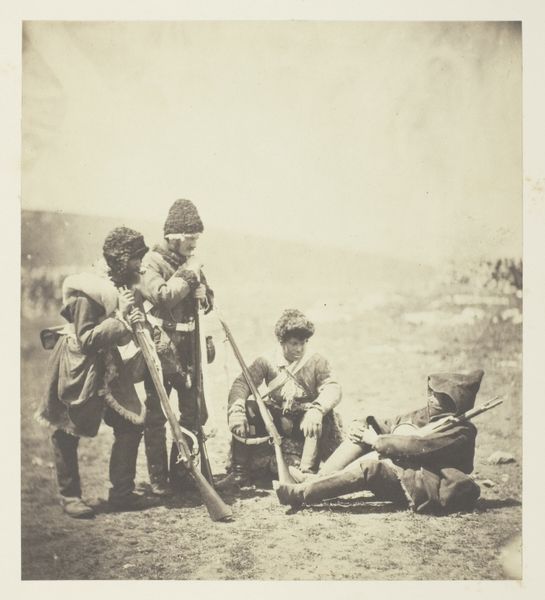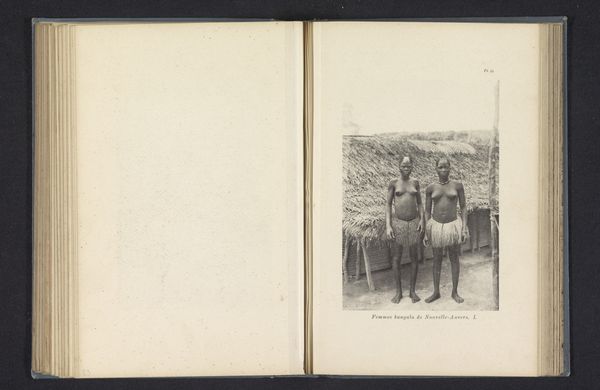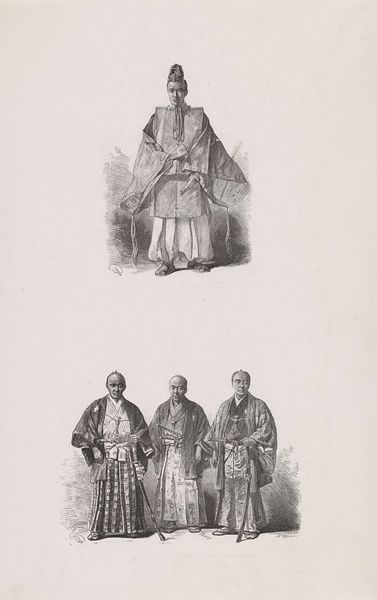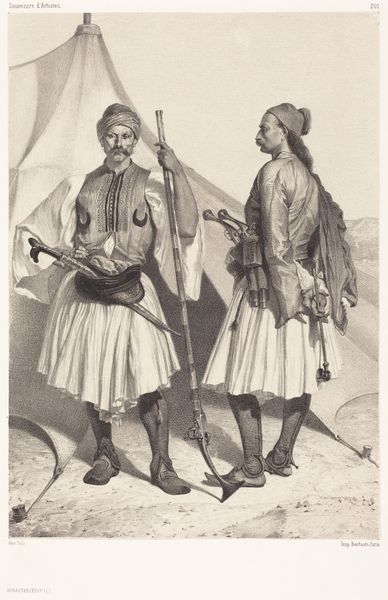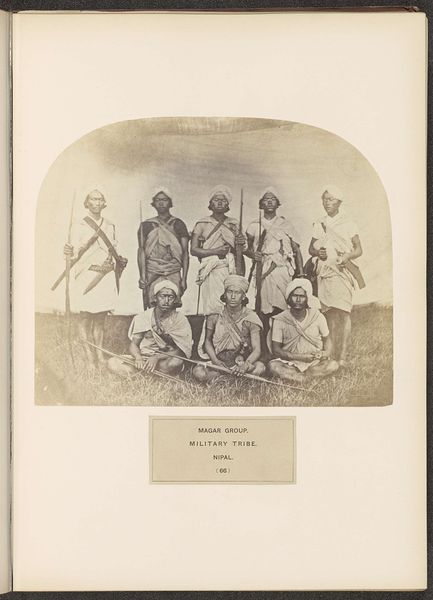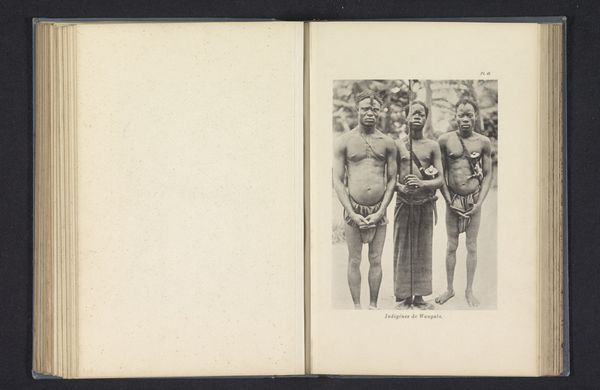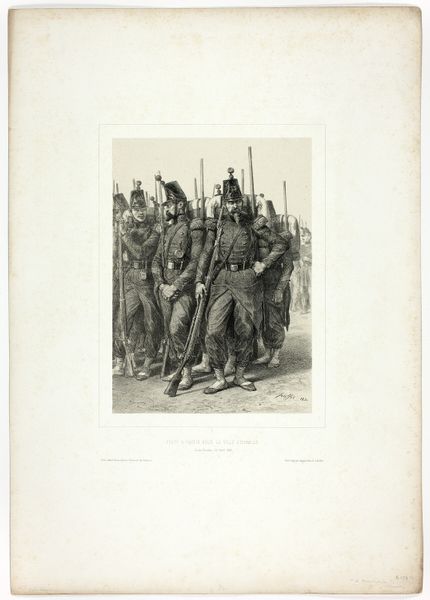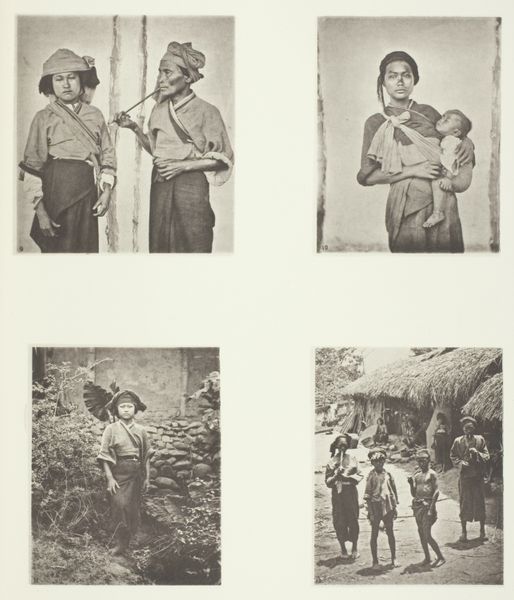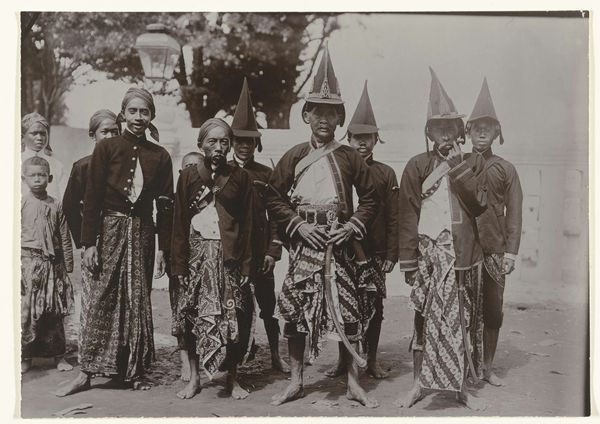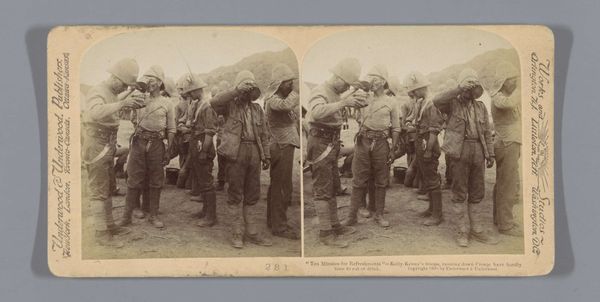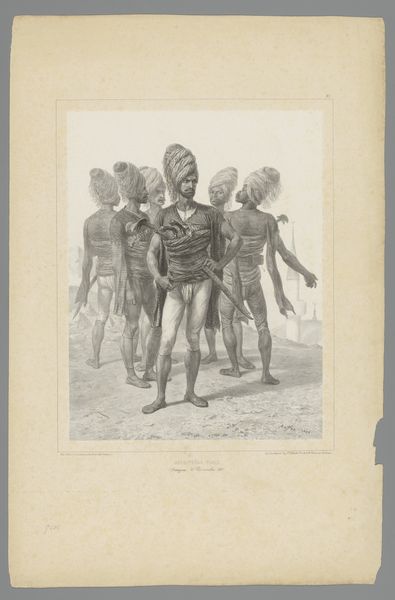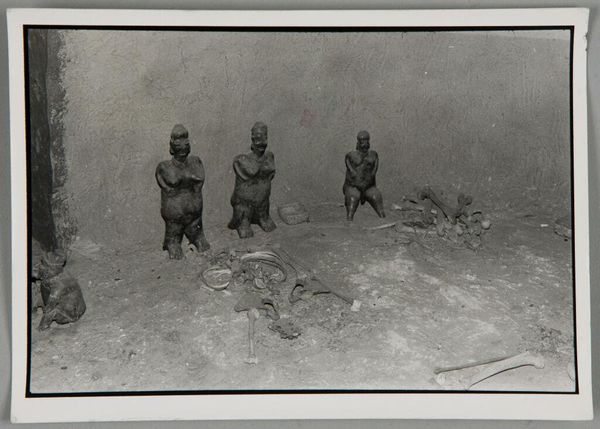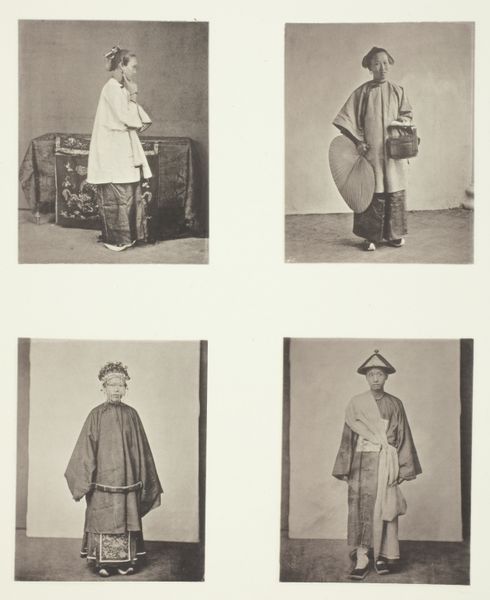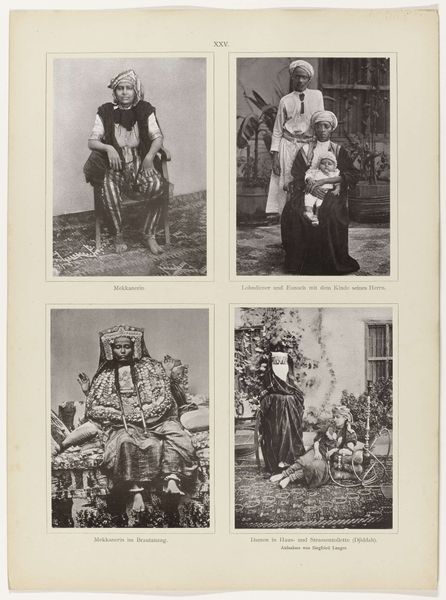
Types Congolais (La Force Armee Ancienne et Actuelle, Exposition Universelle D'Anvers, 1894 c. 1894
0:00
0:00
photography, gelatin-silver-print
#
portrait
#
african-art
#
photography
#
orientalism
#
gelatin-silver-print
#
history-painting
Dimensions: height 358 mm, width 262 mm
Copyright: Rijks Museum: Open Domain
Hippolyte Wouwermans created this print, "Types Congolais," in 1894, during a time when the Congo Free State was under the exploitative rule of King Leopold II of Belgium. It was displayed at the Antwerp World Fair, which was a propaganda event designed to showcase the supposed benefits of colonialism. The print juxtaposes two images: the “traditional” Congolese soldiers, half-naked and bearing spears, and the “modern” Congolese army, fully clothed and armed with rifles. What we see here is a carefully constructed narrative that aims to justify colonial rule by contrasting what Europeans considered to be the primitive past with the supposedly civilized present. This image perpetuates racial stereotypes and erases the violent reality of colonial occupation. It asks us to consider how photography was used as a tool to reinforce power structures, and how these representations shaped perceptions of Congolese people. What does it mean to display human beings as types? In what ways does this image deny the individuality and agency of its subjects?
Comments
No comments
Be the first to comment and join the conversation on the ultimate creative platform.
